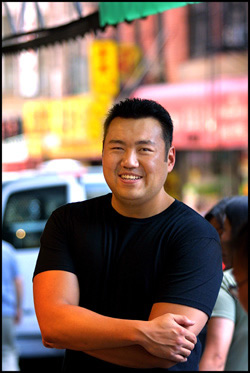|
As early as first grade I can recall my overtures of Crayola portraits and carnations being cast aside by giggles and glances with terrifying ease. Years later it would be the embarrassment and anger of being rejected by the "cool kids" in junior high; then on to high school where my love life remained flat-line, though not for lack of effort. On top of which I was rejected by the National Honor Society, followed not too shortly by a slew of rejections from top colleges. Academic rejection plus romantic rejection was almost too much to bear.
In college my love life did actually exist at certain points (Hooray!) but after college I faced a merciless job market, resulting in my employ at a local Jack LaLanne while living with my parents (rejection plus dejection). Then on to graduate school—accepted by four schools, but rejected by more.
One would think that all of this would prepare someone to deal with rejection as a writer. I'm not sure it does.
After graduate school things started looking up. A series of jobs allowed me to earn a decent living on my own. I got my first novel published, then I wrote another novel that went out on submission. Along the way I was offered a chance to write a young adult novel, which I accepted of course. (I tell students all the time, if someone offers you money to write, you take it: dollars, pesos, rubles or yen, to write a musical, a thriller, a romantic comedy or zombie horror, say yes.) So I was feeling pretty Teflon for a while.
But back to that novel out on submission: it's still out there. After over five years on the market with two agents and easily twenty if not thirty rejections by now, still no takers.
Here's a cross section of feedback I've received, most of which starts with, "Cheng is a wonderful writer, but…"
"Your previous sales make things difficult."
"I wish this were more like Sophie's Choice."
"Too depressing."
"Nothing wrong with the book, but the market…"
"Have you read 's new novel?"
"I just didn't feel as engaged as I wanted to."
"You're a nice guy, but I'm not ready for a relationship."
"The position has been filled."
"We had so many qualified applicants this year…"
"It's not you, it's me."
Wait… sorry. But really, it's not too different.
Cue the famous rejection tales of William Faulkner and John Grisham: The Sound and the Fury manuscript was buried in the great author's desk drawer until it was rescued by his wife; and it is common knowledge that Grisham's first novel was rejected by over twenty publishers.
This is why these stories are so well circulated: because all struggling writers can share at least one thing with Faulkner and Grisham, and if they persevered, we can too.
But these are pipe dreams, right? The odds of winning the Nobel or becoming a perennial bestseller are astronomical. So why do we keep putting our heads on the chopping block when we can clearly see the worn dull blade dangling by a thread above? We don't do this in other facets of our lives, in which we are far more pragmatic and make decisions based on evidence. We don't put ourselves at risk when we know that odds are we are going to get hurt.
So why do we do it?
Because we are in love, and looking for those with whom we can share that love.
Which is why rejection, particularly in your love life, is good training for being a writer. Because your work, if it's true, is you—the culmination and symbol of your heart, your passion, your hopes and dreams. Your work is everything you want and need to make things right in the world—it's what sets you apart from the rest, what makes you believe that all the devotion, dedication, and the grueling brutal daily grind to produce actually means something.
Of course it means something to you, but does it mean something to anyone else? For it to mean something, you want and need that validation from the outside, just like you need someone else to know you are more than just a "nice guy." You want someone to really know you, to trust in you, to take a risk.
Writing and love are both leaps into the unknown, acts of discipline as much as they are acts of faith. If you are not in love with writing then you shouldn't write, because without love, you won't be able to take it. (And I didn't say in love with your writing—I said in love with writing. There's a difference.)
Maybe this is how we continue to face the anguish of rejection: through the inherent belief that we are good and worthy and that our efforts and our being are not doomed to solitude; that we will find validation and laugh in the faces of those who once rejected us, even if we know that that kind of victory is temporal at best; even as we redefine rejection not so much as defeat, but as an inevitable part of our process, our climb toward victory, which is at least partially won as long as we choose to write.
| 

